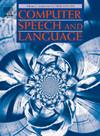SpeechColab leaderboard: An open-source platform for automatic speech recognition evaluation
IF 3.4
3区 计算机科学
Q2 COMPUTER SCIENCE, ARTIFICIAL INTELLIGENCE
引用次数: 0
Abstract
In the wake of the surging tide of deep learning over the past decade, Automatic Speech Recognition (ASR) has garnered substantial attention, leading to the emergence of numerous publicly accessible ASR systems that are actively being integrated into our daily lives. Nonetheless, impartial and replicable evaluations of these ASR systems encounter challenges due to various subtleties. In this paper we introduce the SpeechColab Leaderboard, a general-purpose, open-source platform designed for ASR evaluation. With this platform: (i) We report a comprehensive benchmark, unveiling the current state-of-the-art panorama for ASR systems, covering both open-source models and industrial commercial services. (ii) We quantize how distinct nuances in the scoring pipeline influence the final benchmark outcomes, including capitalization, punctuation, interjection, contraction, synonym usage, compound words, etc. These issues have gained prominence in the context of the transition towards End-to-End ASR systems. (iii) We propose and discuss a modification to the conventional Token-Error-Rate (TER) metric, called modified-TER (mTER), inspired from Kolmogorov Complexity and Normalized Information Distance (NID). The proposed metric becomes normalized and symmetrical (with regard to reference and hypothesis). A large-scale empirical study is then presented comparing TER and mTER. The SpeechColab Leaderboard is accessible at https://github.com/SpeechColab/Leaderboard.

一个用于自动语音识别评估的开源平台
随着过去十年深度学习浪潮的兴起,自动语音识别(ASR)引起了人们的广泛关注,导致许多可公开访问的ASR系统的出现,这些系统正在积极融入我们的日常生活。然而,由于各种微妙之处,对这些ASR系统进行公正和可复制的评估遇到了挑战。本文介绍了用于ASR评估的通用开源平台SpeechColab Leaderboard。通过这个平台:(i)我们报告了一个全面的基准,揭示了ASR系统当前最先进的全景,涵盖了开源模型和工业商业服务。(ii)我们量化评分管道中不同的细微差别如何影响最终的基准结果,包括大写、标点、感叹词、缩写、同义词使用、复合词等。这些问题在向端到端ASR系统过渡的背景下变得突出。(iii)我们提出并讨论了对传统token -错误率(TER)度量的修改,称为modified-TER (mTER),灵感来自Kolmogorov复杂度和归一化信息距离(NID)。被提议的度量变得规范化和对称(关于参考和假设)。然后对TER和mTER进行了大规模的实证研究。SpeechColab排行榜可在https://github.com/SpeechColab/Leaderboard上访问。
本文章由计算机程序翻译,如有差异,请以英文原文为准。
求助全文
约1分钟内获得全文
求助全文
来源期刊

Computer Speech and Language
工程技术-计算机:人工智能
CiteScore
11.30
自引率
4.70%
发文量
80
审稿时长
22.9 weeks
期刊介绍:
Computer Speech & Language publishes reports of original research related to the recognition, understanding, production, coding and mining of speech and language.
The speech and language sciences have a long history, but it is only relatively recently that large-scale implementation of and experimentation with complex models of speech and language processing has become feasible. Such research is often carried out somewhat separately by practitioners of artificial intelligence, computer science, electronic engineering, information retrieval, linguistics, phonetics, or psychology.
 求助内容:
求助内容: 应助结果提醒方式:
应助结果提醒方式:


